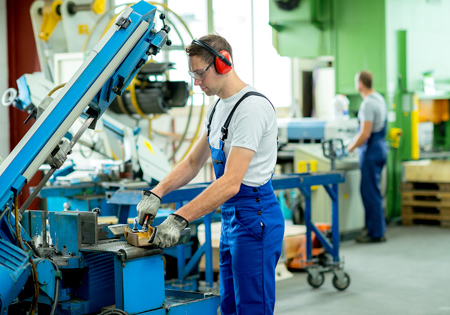Fortunately there is PPE to protect against most possible mishaps. Here are some tips to help you choose the right gear for your workers.
Choose work gear that works
First and foremost the PPE you choose has to be right for the job. So check your state OH&S website for all your current PPE requirements. Next consider fit. If PPE is uncomfortable, workers won’t wear it. So tailor size and fit individually and give full training on proper use and employee responsibilities. PPE isn’t optional, it’s mandatory, so work through from head to foot according to your workplace requirements.
Head protection
If your staff work in the sun, provide wide-brimmed hats, sunglasses and sun block – yes, sun block is considered PPE. Safety helmets need to be worn wherever there is the slightest chance of falling objects – construction sites, warehouses with high racks, factories with open conveyor belts. Ear muffs should be worn to avoid hearing loss when operating any loud machinery.
Face protection
Safety goggles protect against flying objects, dust, splashes and vapours. They need to be tight fitting with a good seal around the eyes. Safety glasses, on the other hand, are only designed to protect the eyes from flying objects as they aren’t sealed. Just make sure you choose glasses made from strengthened plastic or glass so they don’t shatter. For even better protection, especially when mixing chemicals or operating brush cutters, use full face shields.
Breathing protection
Dust, sawdust, fertilisers, lime and pollens; they’re all a breathing disorder waiting to happen. So use dust masks unless there are toxic gases around. Use respirators in these situations.
Hand protection
Cuts, abrasions, burns and infections on the hands can all be avoided with standard work gloves; great as long as there aren’t any chemicals around. If there are, use proper elbow-length, waterproof chemical gloves.
Body protection
For general protection against abrasions and allergic reactions, it’s hard to beat your trusty overalls. That is, of course, unless there are pesticides or other chemicals in the air. Chemical spray suits are your safety option there.
Foot protection
Steel capped boots; says it all really. While all purpose work boots offer some protection from punctures, steel caps offer added protection from crushing. Again, things change if there are chemicals around - PVC gumboots are the safest option for avoiding burns.






